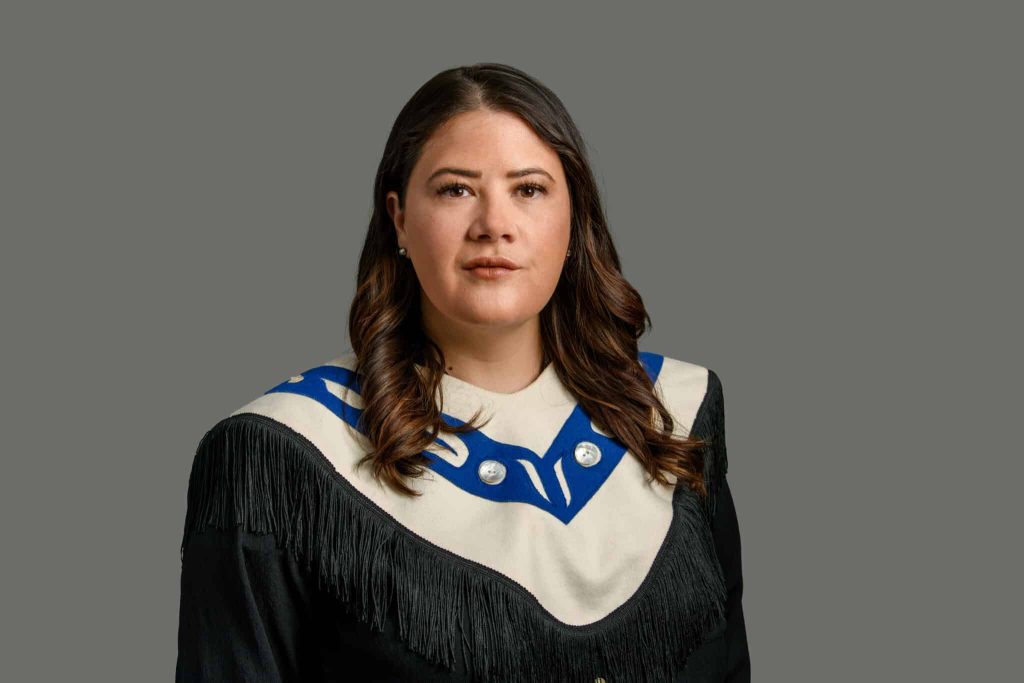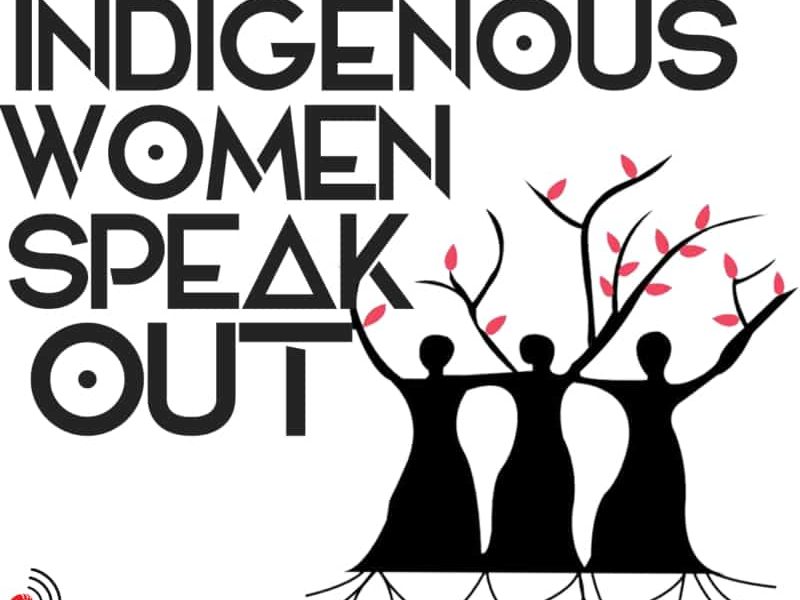
As part of the Indigenous Women Speak Out Series, Women eNews spoke with Kluane Adamek of Kluane First Nation from the Yukon Territory in Northern Canada. Adamek is the Assembly of First Nations (AFN) Yukon Regional Chief.
Adamek is part of the Dakl’aweidi (Killerwhale clan). Her traditional name is Aagé, which means ‘Daughter of the Lake.’ She has a diverse background of Southern Tutchone,Tlingit, Irish, Scottish and German origins. She currently holds the AFN National Portfolios for Climate Change and the Environment, Youth and Modern Treaties.
Martha Troian, an Indigenous journalist and producer based in Canada, recently interviewed Kluane Adamek for Women eNews.
(The following conversation has been edited for length and clarity.)
Q&A
Martha Troian (MT): What are you most proud of when it comes to your people, your nation and your community?
Kluane Ademek (KA): Especially this year, we’ve seen the lives of women and young people being taken too soon. What I am most proud of in those moments, which are so hard and so real and so raw, is that Indigenous people, in particular Northerners, continue to be resilient and continue to lead and develop solutions on the ground. During this pandemic, I’ve seen people come together in a different way, and I think that speaks to the strength and resilience that we have as Indigenous peoples.
MT: How did you get involved in politics in the first place? What surprised you the most about the work?
KA: I was a member of the Assembly of First Nations Youth Council, and so I had this opportunity as a representative for the Yukon Region to go to some AFN National Assemblies, and I was blown away. It was so incredible to me to see all these young people that were so committed to advancing priorities and solutions. I’m the third woman-identifying Regional Chief to serve in this region. After being first appointed as the interim and then elected in 2018, we saw Ontario Region elect a woman and then Alberta Region elect a woman for the first time. It was really about the energy and seeing people and women on the ground who were working to implement all the things we talked about, whether it was housing, the environment or education.
MT: Can you also talk about why it’s important to recognize the matriarchs before us and what they can teach us?
KA: When I say the Yukon is matriarchal and matrilineal, I know that many other nations and regions are also this way. We also have a clan system that is integral in terms of governance structures. Those systems are the governance systems and structures that existed for thousands and thousands of years. My grandmother passed away during the pandemic, and it's been incredibly hard. She always told me that this generation has a different challenge and a different responsibility, and we need to find that balance that comes from holding up men, women, our two-spirit relatives, and people of all gender expressions. That balance also comes from those of us who have mixed ancestry - we’re all trying to figure out this moccasin on one foot and a stiletto on the other analogy.
MT: Can you talk about the realities of being a young Indigenous woman in leadership today?
KA: I think it’s so important for women to both take their rightful place and to step forward. Is it easy? No. There’s ageism, there’s gender-based violence, and that’s all very much alive. I’m grateful to have strong relationships with women like former Regional Chiefs and women who I look to as Elders like Shirley Adamson and Elder Mary Jane Jim. These women have served in positions of leadership and held various other important roles. Some of the things they dealt with are things I'm dealing with, and it's 25 years later. Something that I found interesting in this role is the double standards for men and women. I’m super raw and candid because I think it’s important not to sugarcoat things - that will not create the change that is necessary. The more that we push, the more that we see things change. I want to shout out to all those incredible men who are allies out there, especially our Indigenous men who stand beside us, behind us, in front of us, or wherever we need them to.
MT: I wanted to ask you about environmentalism & climate advocacy, and youth leadership. These are two areas that are very close to your heart; why so?
KA: Kluane Lake has gone down by nearly ten feet in the last decade. We see the huge impacts that global warming and climate change have had in our community, and it's pretty mind-blowing. Kluane Lake is part of our identity at our core, and so we’re seeing this happen on the ground. The impacts of climate in the North are experienced, as we know, three times faster than anywhere else. I feel that sense of responsibility to my core to continue to do whatever we can to minimize those impacts. My passion will always be to make sure that we create space for young people. We started this amazing project in the Yukon and it came directly from young people in our region. We hosted a huge climate gathering last year, and we brought together Elders and youth. It was called ‘Shared Heart,’ and it was amazing. What came out of that was a fellowship that gave youth a project to lead, where they would then develop their own solutions for their Nations. It’s a unique project, but it came directly from young people and knowledge keepers, and this is an incredibly important part of building solutions for the future.
MT: Is there a message that you could bring to the next upcoming Indigenous leaders? I am wondering why it is important to empower emerging leaders and youth?
KA: I want to give a shout-out to “We Matter,’ who started an incredible initiative, and I think that health and wellness are such an important part of these conversations. I want to say to everybody who’s listening right now, but especially to the young people: you matter and you are loved! We need everyone to be part of the movements toward change that are coming. There are so many different ways people can be a part of this work while also being mindful of how important it is to set boundaries for your health and wellness.
MT: Is there anything else that you would like to add?
KA: We do have work to do to educate different generations about what gender equity looks like. What does that mean? What is appropriate and what isn’t? It shouldn't be just on women’s shoulders or women who identity, and we have got to create more space for LGBTQIA2S+ people. I want to see more elected leaders commit to creating that important space and being mindful of how we treat people. I think one of our biggest teachings is about respect. It doesn't matter how you identify, or what you look like, or how old you are, what gender or non-gender you identify with; it’s about who you are and how you show up.
